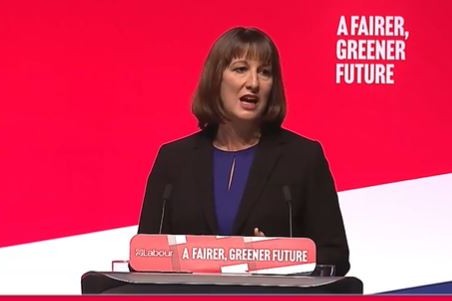Nursing and other health leaders have said they are concerned about the impact cuts to welfare may have on demand for NHS services.
Rachel Reeves, chancellor of the exchequer, delivered her spring statement today, ahead of the end of the 2024-25 financial year.
“The NHS is not an island”
Sarah Woolnough
In it, Ms Reeves confirmed previously mooted cuts to welfare were on the horizon, and reiterated the government’s hopes that dissolving NHS England would save money.
Last week, the government announced that it was hoping to save around £5bn by changing the way benefits were allocated.
Proposed changes included making it harder to claim Personal Independence Payment for anyone who is not profoundly disabled or ill, and reducing the health element of Universal Credit for new claimants from 2026-27.
Ms Reeves, in her speech today, confirmed that these welfare changes were due to go ahead, reiterating her government’s newly-adopted slogan that the Labour Party is “the party of work”.
The chancellor said the cuts were designed to encourage people who were able to work back into employment, something many charities and other politicians have pushed back on since the original announcement last week.
Ms Reeves also spoke about reducing other expenditure, and “inefficiencies”, across the government, citing the previously announced plans to abolish NHS England and merge its functions back into the Department of Health and Social Care (DHSC).
“The government is now going further and faster, including announcing that the arms‑length body NHS England will be brought back into the Department of Health and Social Care in order to reduce bureaucratic inefficiencies and duplication in the National Health Service,” she said.
No other significant changes to the DHSC or NHS budgets were announced by Ms Reeves.
Professor Nicola Ranger, chief executive and general secretary of the Royal College of Nursing (RCN), said the budget was a “missed opportunity” for the government to invest in nursing, including improving their wages.
“Inequality and deprivation are directly linked to poor health”
Nicola Ranger
She said the lack of an annoucement on pay meant ministers were “on course” to miss the 1 April deadline for agreeing a NHS pay deal for 2025-26.
This meant nursing staff were “once again left in the dark and set to receive another late pay award”, warned Professor Ranger.
“The government’s aims to reduce demand on services, keep people healthy and boost growth will only be achievable with a well-resourced, fairly paid nursing workforce,” she added.
Professor Ranger also aired concern about the welfare cuts: “As clinical professionals, nursing staff are clear that the government’s health mission and plans to shift from treatment to prevention will be undermined by these cuts.
“Inequality and deprivation are directly linked to poor health.
“Measures that push vulnerable people into poverty, particularly those with disabilities and long-term conditions, will not only worsen both physical and mental health outcomes but pile more pressure on NHS services, costing more in the long run.”
This concern was shared by Saffron Cordery, interim chief executive of NHS Providers, who said mental health trust leaders were worried about the impact on demand for services of cuts to benefits.
Ms Cordery added: “There are particular worries over the potential impact on disabled peoples’ health and their ability to support themselves.
“With poor mental health the leading driver of ill-health related economic inactivity, trust leaders fear these changes could add to pressures on mental and physical health services which are already severely stretched.”
Ms Cordery said the statement was a reminder of the “scale” of financial challenges facing public services.
Sarah Woolnough, chief executive of health think tank the King’s Fund, said Ms Reeves’ announcements would have “consequences” for health, despite the NHS not featuring heavily in the budget statement.
“The NHS is not an island,” she said. “There are a range of public services that impact our health, as they determine things like the quality of housing, access to green space, and availability of transport.
“Similarly, the extent to which the NHS can help keep the nation healthy will impact on demand for some other areas of public spending.
“To this point, the disability benefit reforms announced last week, are in part reliant on health and care services being in place to support people back to good health. As it stands, many of those NHS services are not routinely and reliably available across the country.”

